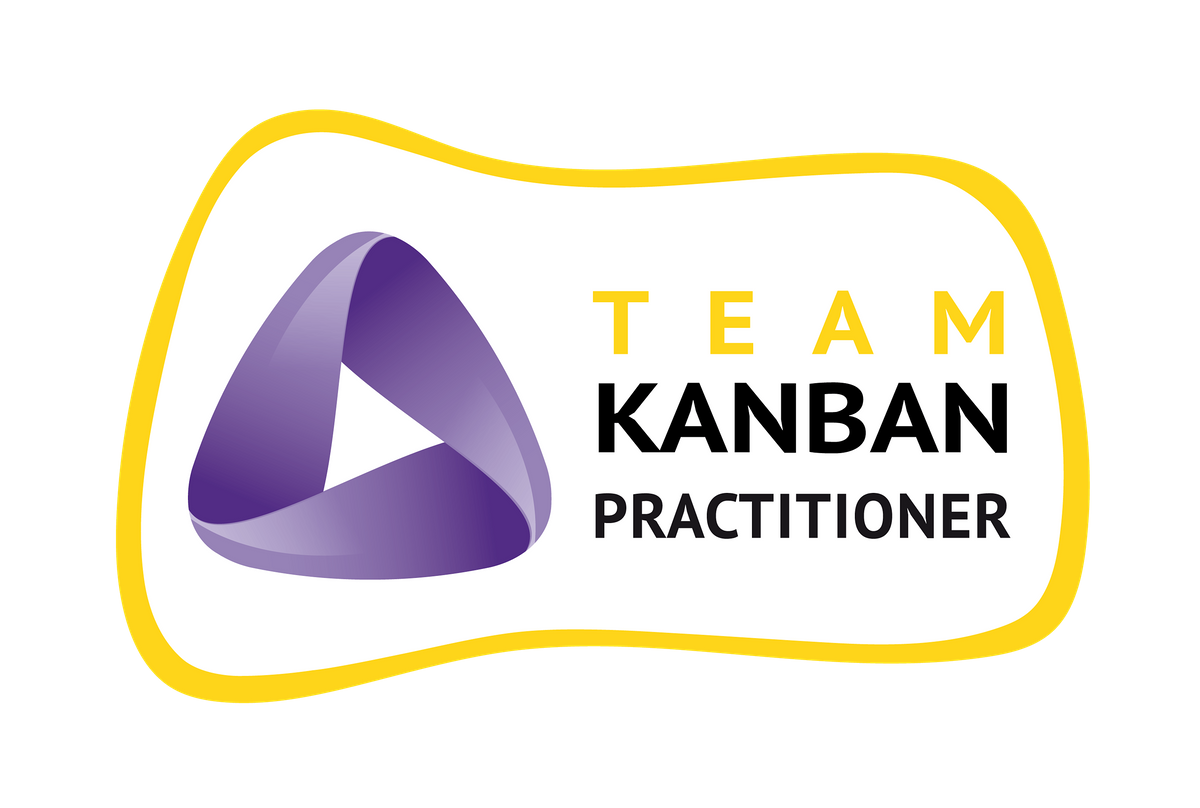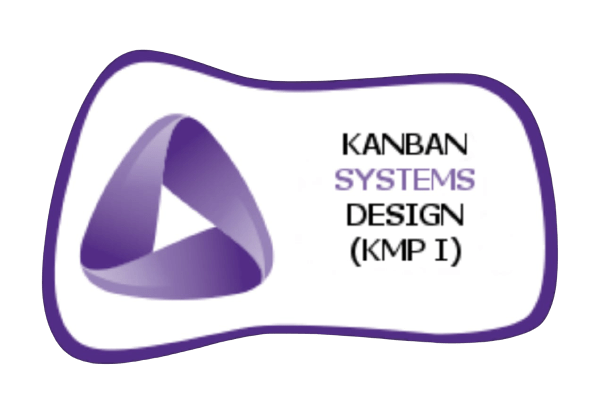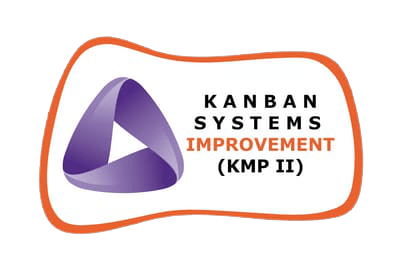Team Kanban Practitioner (TKP)
See your team’s work and manage it effectively together!
How? Implement Kanban at the team level! If you work in Scrum, strengthen it with Kanban practices.
- Have you heard that Kanban is more than just a board and that it can help deliver Scrum Sprints?
- Do you want to start your adventure with Kanban, but you don’t know where to start?
- Have you tried so far with a board that no one uses?
Team Kanban Practitioner is a workshop focused on practical knowledge of the principles and 6 practices of Kanban!
It’s over 3 hours of addictive simulations and games! During the training you will learn:
- what Kanban really is,
- how to visualize work using the Kanban Method,
- how to balance and optimize the pace of work and the number of tasks using work in progress limits?
- how to encourage the team to share responsibility for and collaborate on work
What benefits?
- better understanding of workflow and value creation in the team
- increased work transparency,
- faster and more responsive responses to changes,
- more effective risk management.
Is this for me?
Regardless of whether you work with a development team in Scrum, run a recruitment or marketing team, Kanban at the team level is something that will definitely help!
For whom?
- Scrum Masters, team members and their leaders who want to understand the basic concepts of the Kanban method and start implementing them in their teams.
- TKP training is a great tool to build awareness of both new and existing teams.
- The training is of great interest not only in the IT industry, but also in all areas of intellectual and knowledge-based work – services, BPO, marketing, sales, HR, retail, etc.
Do I need preparation?
The training is intended for all specialists and teams. No prior preparation in the Kanban method is required.
Conditions:
Active completion of the training ends with the awarding of a certificate and the title of Team Kanban Practioner from Kanban University. Depending on your needs, the training can be organized in Polish or English.
All training participants will receive:
- official Kanban University training materials
- David J. Anderson’s book “Kanban” (PDF, English version)
- Team Kanban Practitioner certificate and title from Kanban University
- 7 Personal development points (PDUs) for PMI members who register points for the Project Management Professional (PMP) certification
Duration:
- 1 day in the stationary formula
- 1 day or 2 half-day sessions in the online formula
Kanban System Design Practitioner (KMP I)
Learn, understand and apply the Kanban method to help your team navigate more efficiently in a changing environment! The Kanban System Design training covers the scope of knowledge needed to efficiently manage project, product or service work using the Kanban Method. It allows the team to become better customer-oriented, engage and empower its members to make better decisions, and implement helpful metrics.
For whom?
- Formal and informal leaders and members of teams producing products and providing services in the domains of intellectual and knowledge-based work (IT, marketing, HR, sales, BPO),
- Project and program managers,
- Scrum Masters, Agile Coach, change agents (agile transformations) in companies,
- Everyone who is looking for work methods that ensure better customer orientation, people’s involvement, quality and predictability.
What benefits?
- determining the causes of internal and external dissatisfaction of the organization/customer
- building a Kanban system that reflects the current process in your organization
- taking an evolutionary path towards improving the organization, building a predictable and satisfactory system of providing services and building products,
- ability to use the Kanban method as a complement to existing work methods in the organization (Scrum, SAFe, Spotify model, and others.
Objectives and scope of training:
- visualization of various types of work or services
- practical learning how to design boards and work items in the Kanban system
- methods for dealing with multitasking and work disruptions (WIP limits)
- understanding the benefits of using pull systems
- understanding the needs for introducing classes of services and their benefits
- ability to introduce and use Kanban metrics
- practical knowledge of how to ensure a continuous flow of work and values (flow).
Do I need preparation?
Completing the training results in obtaining a certificate from Kanban University and begins the path to the Kanban Management Professional (KMP) title from Kanban University. Depending on your needs, the training can be organized in Polish or English.
All training participants will receive:
- official Kanban University training materials
- David J. Anderson’s book “Kanban” (PDF, English version)
- certificate of completion of the training and if they agree, their profile will be available on the kanban.university website
- 14 Personal Development Units (PDUs) for PMI members who register for Project Management Professional (PMP) certification
Duration:
- 2 days in the stationary formula
- 2 days or 4 half-day training sessions online
Kanban Systems Improvement (KMP II)
The Kanban Systems Improvement (KSI) training is aimed at people who already know the Kanban method and have experience with its implementation, at least at the level of a single team. It raises topics of dealing with resistance to change in the organization, understanding and using asymmetric and delayed work commitments, organizing the work of multiple teams, a more in-depth understanding of Kanban metrics, and fully using Kanban cadence.
For whom?
- Leaders and managers responsible for managing projects, teams or supporting larger organizational units (e.g. several teams, different products), managing programs and project portfolios
- Agile Coaches, Scrum Masters, people responsible for the transformation and evolution of entire organizations towards business agility.
Objectives and scope of training:
- How to improve the first implementations of Kanban systems?
- Dealing with resistance to change in the organization
- Detailed discussion and practice of implementing the so-called Kanban term, i.e. feedback loops and meetings for teams working with the Kanban method
- Understanding and using asymmetric & deffered commitment
- Upstream Kanban -product discovery and building tool
- Portfolio and program management using Kanban
- In-depth understanding of Kanban metrics, their use to analyze the causes of problems and evolutionary improvement
- Development of service orientation inside and outside the organization
- Managing evolutionary change in the organization at every level
- Roles and responsibilities in organizations using the Kanban method
- Methods of dealing with the variability of the subject of work, environment
- Introduction to the concepts of transaction and coordination costs
- 14 Personal Development Units (PDUs) for PMI members who register for Project Management Professional (PMP) certification
- Active completion of the KSI training is associated with obtaining a Kanban University certificate. Completing KSD and KSI courses allows you to obtain the title of Kanban Management Professional (KMP)
Do I need preparation?
KSI training is advanced training. It is recommended to take part in KSD training (KMP I) and/or have longer experience with implementing Kanban in organizations at least at the level of one team. In case of doubt, prior contact is recommended.
All training participants will receive:
- official Kanban University training materials
- David J. Anderson’s book “Kanban” (PDF, English version)
- certificate of completion of the training and if they agree, their profile will be available on the kanban.university website
- 14 Personal Development Units (PDUs) for PMI members who register for Project Management Professional (PMP) certification
Duration:
- 2 days in the stationary formula
- 2 days or 4 half-day training sessions online
Kanban Maturity Model (KMM)
The Kanban Maturity Model training is a training introduced in 2019 and opening the way to the title of Kanban Coaching Professional (KCP). This is advanced training for practitioners, which is based on Kanban University and our own case studies. During 3 days, participants work on how to analyze the level of organizational maturity of a given company and how to select appropriate forms of Kanban Method practices.
For whom?
It is advisable to complete the KMP path and have your own experience with Kanban implementation.
Conditions?
The KMM training is a specialized training, so if you are interested in participating, please let me know via chat or contact form.




